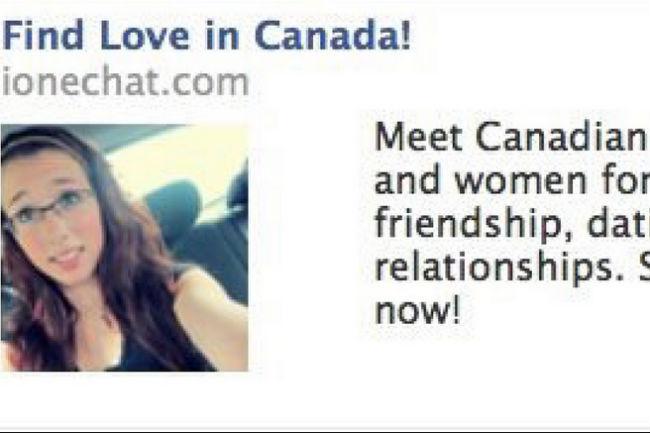
Facebook’s habit of snaking user pictures and inserting them in marketing material has already landed the website in legal trouble. But that behavior looks positively elegant compared to the insanely tacky ad it posted — an ad that used the photograph of a Rehtaeh Parsons, a young girl from Nova Scotia who committed suicide after being bullied online, to promote a Canadian dating service.
Toronto-based copywriter Andrew Ennals took a screengrab of the inappropriate ad and alerted Facebook about it.
Supreme bad taste: a dating site’s Facebook ad is using a picture of Rehteah Parsons. pic.twitter.com/nbYhRFr5Mc
— Andrew Ennals (@andrewennals) September 17, 2013
Facebook responded to complaints about the image and took it down, and the company issued an apology today. “This is an extremely unfortunate example of an advertiser scraping an image from the internet and using it in their ad campaign,” Facebook said in a statement. “This is a gross violation of our ad policies and we have removed the ad and permanently deleted the advertiser’s account. We apologize for any harm this caused.”
The advertiser, ionchat.com, has been banned from further submissions to Facebook. The owner of the now-defunct site told the Toronto Sun that he has used the photograph by mistake without realizing who Parsons was.
Speaking of grief, this incident is a fine example of why websites need to take responsibility and properly moderate their advertisements. Parsons’ parents saw the advertisement and were horrified. Facebook carefully assigned blame to the advertiser in its apology, but as a platform, the company should be culpable for allowing these advertisements to go up without proper oversight.
Editors' Recommendations
- How to set your Facebook Feed to show most recent posts
- When is the best time to post on Facebook?
- Three reasons Facebook/Meta is shutting down its face recognition system
- Facebook expands its ban on QAnon conspiracy theory accounts
- Facebook to ban ads that claim election win before official announcement


